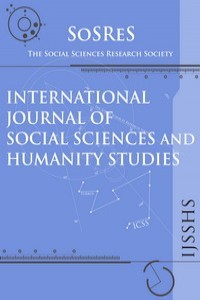THE WASHBACK EFFECT OF THE NATIONAL SENIOR CERTIFICATE EXAMINATIONS: PERCEPTIONS OF TEACHERS IN UMGUNGUNDLOVU DISTRICT, SOUTH AFRICA
THE WASHBACK EFFECT OF THE NATIONAL SENIOR CERTIFICATE EXAMINATIONS: PERCEPTIONS OF TEACHERS IN UMGUNGUNDLOVU DISTRICT, SOUTH AFRICA
- Başlangıç: 2009
- Yayıncı: Sosyal Bilimler Araştırmaları Derneği
DISASTER RISK REDUCTION PERSPECTIVES IN HEALTH SERVICE DELIVERY IN SOUTH AFRICA
Roshilla SAHADEO, Mogie SUBBAN
WORKPLACE SPIRITUALITY FOR IMPROVED PRODUCTIVITY: A GENDERED PERSPECTIVE
SOCIAL FRANCHISING AND SUPPLEMENTARY TUTORING: A QUALITATIVE ANALYSIS OF FACILITATORS’ PERCEPTIONS
Pieter van Schalkwyk, Jhalukpreya Surujlal
Petrus MACHETHE, Emeka E. OBİOHA
THE CONTRIBUTION OF LECTURE CAPTURING TO THE LEARNING EXPERIENCE OF ACCOUNTING STUDENTS
GAMES FOR LEARNING IN ACCOUNTANCY EDUCATION: A SYSTEMATIC LITERATURE REVIEW
Veruschka Pelser-Carstens, Margaretha Johanna Preston, A. Seugnet BLİGNAUT
A COMPARATIVE ANALYSIS OF COPING STRATEGIES USED BY FOOD SECURE AND FOOD INSECURE HOUSEHOLDS
